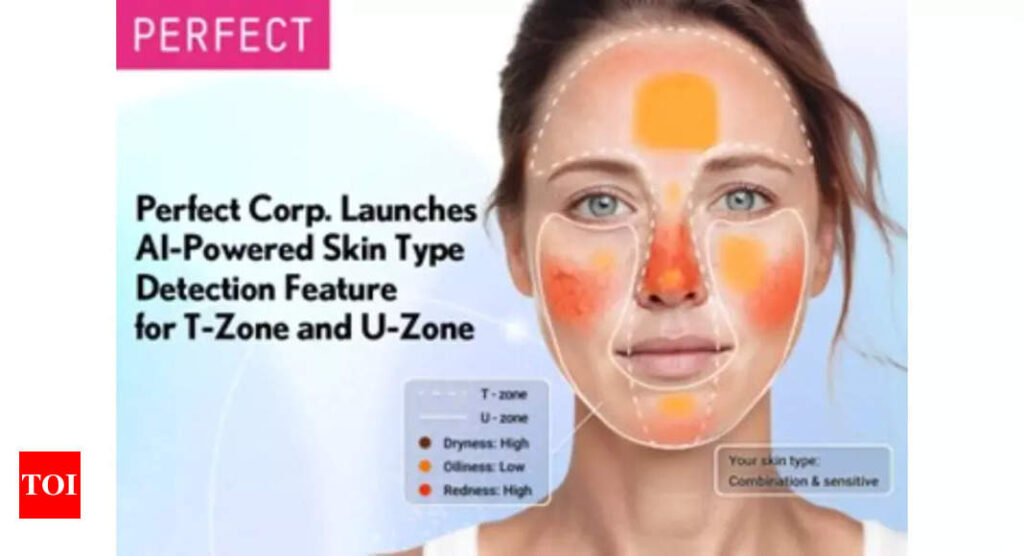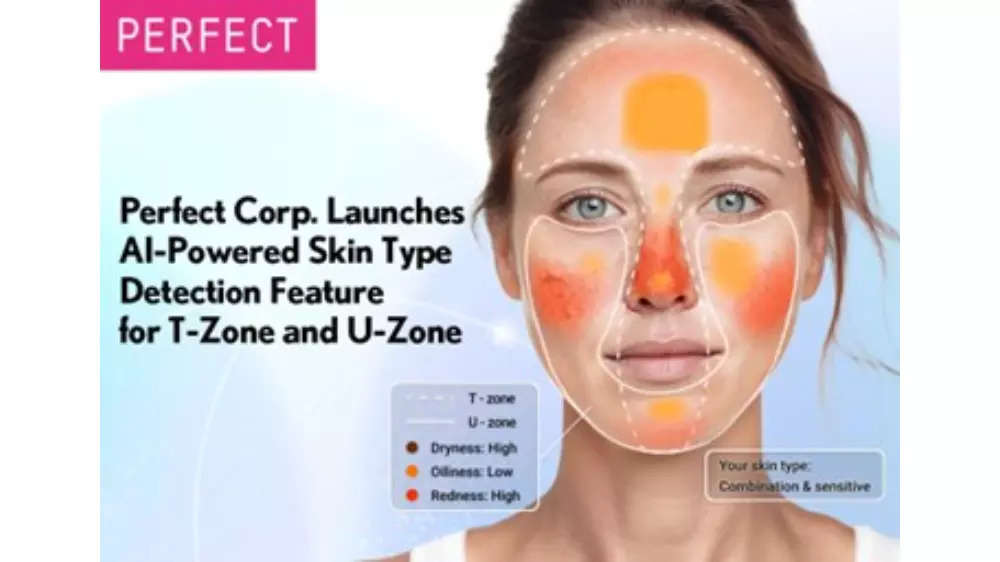[ad_1]
Artificial intelligence (AI) and augmented reality (AR) beauty and fashion tech solutions provider, Perfect, has launched a new Skin Type Detection technology. This technology is powered by AI and can analyse up to 14 different skincare concerns. This helps the model to accurately determine the user’s skin type as normal, oily, dry, sensitive, or combination.
The company claims that the speed and accuracy of the analysis help with a more personalised and convenient way for consumers to be more proactive in their skincare routine. This technology will also guide users to make more informed purchase decisions that are better for their skin health concerns.
The feature is available via an embedded web module and skincare widget mode, making it an easy integration for brands and retailers who want to empower their consumers to dive deeper into their skin care journey and discover products tailored to fit their skincare concerns.
AI Skin Type Detection: How it Works
The AI Skin Type Detection supports detection across the T-zone and U-zone of the face to determine normal, oily, dry, sensitive, and combination skin types. It also detects various degrees of sensitivity based on combined factors of redness, hydration levels, and more.
The result helps skincare brands to match shoppers with the products most beneficial for their skin type. This advancement creates a tailored virtual skincare experience that speaks to the modern-day skincare shopper, in search of a regimen fit for their specific skin health needs. By delivering fast and accurate results, AI Skin Type Detection builds on a more comprehensive skincare experience that shoppers can trust.
AI skincare experience
The new AI Skin Type Detection tool offers personalised skincare product recommendations that depend on an individual’s specific skin type and concerns. To start, users are prompted to line up their faces for optimal lighting, angle, and face position for the most accurate scan.
The company claims that the speed and accuracy of the analysis help with a more personalised and convenient way for consumers to be more proactive in their skincare routine. This technology will also guide users to make more informed purchase decisions that are better for their skin health concerns.
The feature is available via an embedded web module and skincare widget mode, making it an easy integration for brands and retailers who want to empower their consumers to dive deeper into their skin care journey and discover products tailored to fit their skincare concerns.
AI Skin Type Detection: How it Works
The AI Skin Type Detection supports detection across the T-zone and U-zone of the face to determine normal, oily, dry, sensitive, and combination skin types. It also detects various degrees of sensitivity based on combined factors of redness, hydration levels, and more.
The result helps skincare brands to match shoppers with the products most beneficial for their skin type. This advancement creates a tailored virtual skincare experience that speaks to the modern-day skincare shopper, in search of a regimen fit for their specific skin health needs. By delivering fast and accurate results, AI Skin Type Detection builds on a more comprehensive skincare experience that shoppers can trust.
AI skincare experience
The new AI Skin Type Detection tool offers personalised skincare product recommendations that depend on an individual’s specific skin type and concerns. To start, users are prompted to line up their faces for optimal lighting, angle, and face position for the most accurate scan.
The technology then automatically detects and analyses 14 of the most common skincare concerns including spots, wrinkles, texture, redness, oiliness, moisture, eye bags, acne, droopy upper eyelids, droopy lower eyelids, firmness, radiance, dark circles, and pores. Meanwhile, it also generates an overall skin health score.
Further building on the AI skin analysis, the technology can also detect a user’s skin type, generating a complete skin report that details the specifics of their results as well as product recommendations that target their unique areas of concern.
[ad_2]
Source link











More Stories
Google Maps: Three privacy features coming to Google Maps on Android, iPhones
Most-Downloaded IPhone App: This Chinese app was the most-downloaded iPhone app in the US in 2023
Ukraine’s largest mobile operator goes offline for millions of users after cyber attack